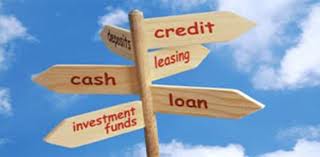
Nature of work
The main task that an economist must do is to apply economic analysis to issues within a variety of fields, such as education, health, development, and the environment. Some economists study the cost of products, healthcare, or energy. Others examine employment levels, business cycles, or exchange rates. Still others analyze the effect of taxes, inflation, or interest rates.Economist often studies historical trends and uses them to make forecasts. He/she researches and analyzes data using a variety of software programs, including spreadsheets, statistical analysis, and database management programs.
Common economist specialties are:
Econometrician develops models and uses mathematical analyses to test economic relationships. He/she uses techniques such as calculus, game theory, and regression analysis to explain economic facts or trends in all areas of economics.
Financial economist analyzes savings, investments, and risk. He/she also studies financial markets and financial institutions.
Industrial organization economists study how companies within an industry are organized and how they compete. They also examine how antitrust laws, which regulate attempts by companies to restrict competition, affect markets.
Environment of work
The environment of this career offers flexible conditions to the employment. For example, economist often works independently in an office or he/she can collaborate with other economists and statisticians, sometimes working on teams. Also, he/she can work from home. However, he/she may need to travel as part of his/her job or to attend conferences.Some economists combine a full-time job in universities or business with part-time consulting work.
Most economists work full time. Some might need to work under pressure of deadlines and tight schedules that may require overtime.
Professional life
Most of economists work in government. Government economists collect and analyze data about the syrian economy. They also project spending needs and inform policy makers on the economic impact of laws and regulations.Many economists work for corporations and help them understand how the economy will affect their business. Specifically, economists may analyze issues such as consumer demand and sales to help a company maximize its profits.
Economists also work for research firms and think tanks, where they study and analyze a variety of economic issues. Their analyses and forecasts are frequently published in newspapers and journal articles.
Some economists work abroad for companies with major international operations and for international organizations such as UNDP
Many people with an economics background become professors or teachers.
The starting sallary wage of economists is 55000 SYP.
Getting the job
A candidate who likes to access to this career must get an advanced degree, but some entry-level jobs are available with a bachelor’s degree.A master’s degree or Ph.D. is required for most economist jobs. Positions in business, research, or international organizations often require a combination of advanced education and work experience.
Students can pursue an advanced degree in economics with a bachelor’s degree in a number of fields, but a strong background in math is essential. A Ph.D. in economics requires several years of study after earning a bachelor's degree, including doing detailed research in a specialty field.
Candidates with a bachelor’s degree qualify for some entry-level economist positions, including jobs with the government. An advanced degree is sometimes required for advancement to higher level positions.
Most who complete a bachelor’s degree in economics find jobs outside the economics profession as research assistants, financial analysts, market analysts, and similar positions in business and finance.
Skills
Along with the relevant qualifications a candidate has to show evidence of some skills such as analytical skills. Economist must be able to review data, observe patterns, and draw logical conclusions. For example, some economists analyze historical employment trends to make future projections on jobs. Also, economist must be able to think critically because he/she must use logic and reasoning to solve complex problems. For instance, he might identify how economic trends may affect an organization.Furthermore, economist must pay attention to details. Precise data analysis is necessary to ensure accuracy in his/her findings therefor, he/she must have detail oriented skill. In addition to math skills because economist will use the principles of statistics, calculus, and other advanced topics in mathematics in his/her economic analyses.
Speaking and writing skills are necessary for a person who likes to apply for this position because economist must be able to explain his/her work to others. He/she may give presentations, explain reports, or advise clients on economic issues. He/she may collaborate with colleagues and sometimes must explain economic concepts to those without a background in economics.
Sources and references
For further information about this career a candidate can visit the following websites: www.worldbank.org, World bank.
www.alolabor.org, Arab Labor Organization
Arab Standard Classification of Occupations, 2008, Ed. Arab Labor Organization
